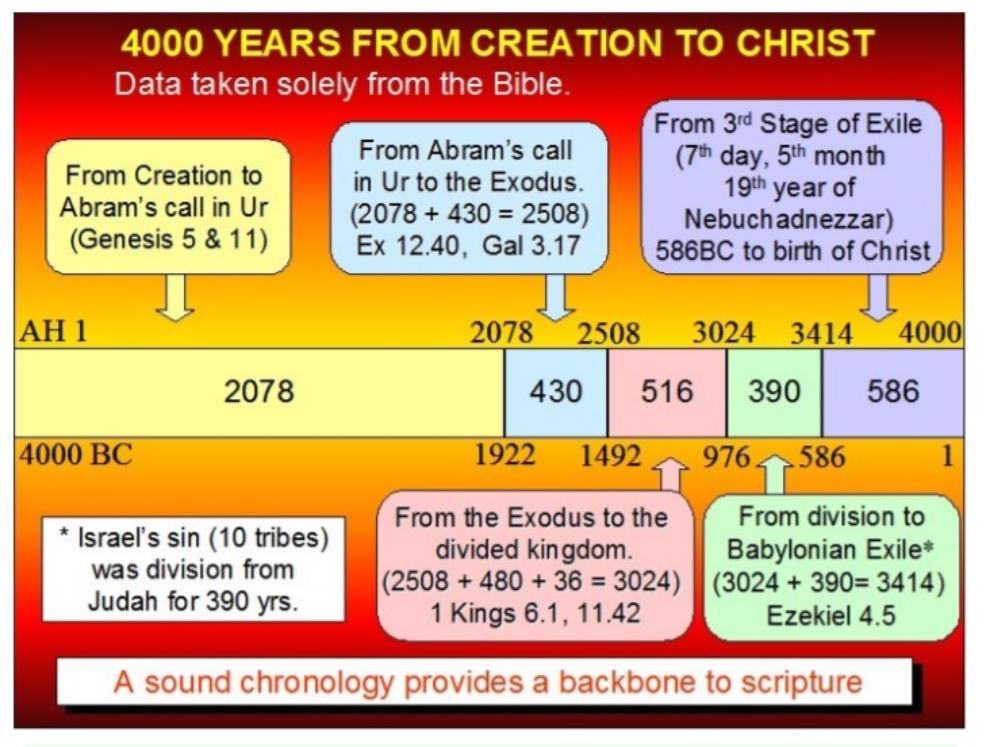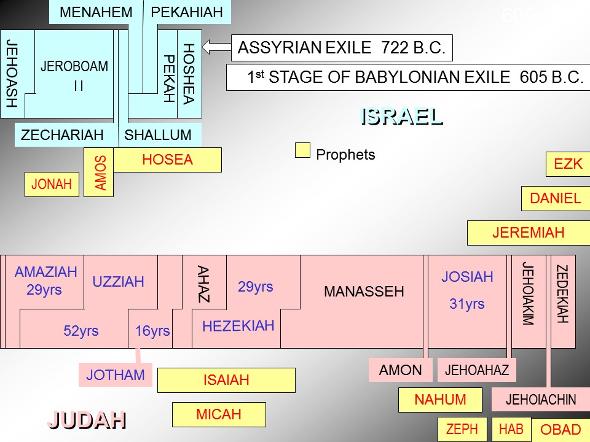
Numerous attempts have been made to produce a timeline of scripture with much variation evident. This attempt is based solely on the information provided in the Bible itself and is not dependant on external sources, although many of these confirm what God has revealed in His Word.
However the Word of God stands alone and does not need 'propping up' by anything man produces.
There are many dates and time references in scripture, especially in the Old Testament, and these are just as inspired as the rest of the text.
The genealogies given in Genesis 5 and 11 are 'water tight', that is, there is no room for expanding the lifetime of any of the people mentioned.
The formula is simple. A lived for x number of years and begat B. A lived for y number of years after this and died.
The total number of years A lived was x + y.
Even if, for whatever reason, some believe the sons could be grandsons or great grandsons, the lifetime of A would remain the same.
There are different conclusions regarding the length of time the Israelites were in Egypt. A study of all the relevant scriptures seems to indicates that the 430 years of Exodus 12.40 and Galatians 3.17 began with Abram's call in Ur of the Chaldeans and ended with the Exodus from Egypt. Significantly we are given the lifespans of Levi, Kohath, Amram and Moses in Exodus 6.
If a scale drawing is made (as here) it will be seen that 430 years is too long for the lifetime of these people to be fitted in, but a timescale of 210 years fits well. The reference to the 'fourth generation' in Genesis 15 is further confirmation that this is the true and intended interpretation.
Here are the relevant scriptures for the time spent in Egypt. The scriptures do not contradict each other so the reference in Exodus 12.40 must be amplified or 'fine tuned' by Galatians 3.17, as well as other scriptures, to include the time from Abram's call to entry into Egypt.
The 516 years from the Exodus to the divided kingdom are made up of 480 years from the Exodus to the temple foundation, which was in the 4th year of Solomon's reign, plus another 36 years to the end of Solomon's life (1 Kings 11.42).
The 400 years began with the birth of Isaac. Note 'your seed' in Genesis 15.13.
There does not seem to be an agreement regarding the reigns of the Pharaoh's but the one given here fits well with the life of Moses and the Exodus itself. Ahmose 1 was the first Pharaoh of the 18th dynasty and the New Kingdom. He conquered and expelled the Hyksos who had controlled Egypt from the 12th dynasty. This would explain how a new king could have arisen who did not know Joseph.
If the date for the death of Thutmose i is correct it would coincide with the Exodus.
